Tokyo Story

See more details, packaging, or compare
Synopsis
A profoundly stirring evocation of elemental humanity and universal heartbreak, Tokyo Story is the crowning achievement of the unparalleled Yasujiro Ozu. The film, which follows an aging couple’s journey to visit their grown children in bustling postwar Tokyo, surveys the rich and complex world of family life with the director’s customary delicacy and incisive perspective on social mores. Featuring lovely performances from Ozu regulars Chishu Ryu and Setsuko Hara, Tokyo Story plumbs and deepens the director’s recurring theme of generational conflict, creating what is without question one of cinema’s mightiest masterpieces.
Picture 8/10
Yasujiro Ozu’s Tokyo Story makes its North American Blu-ray debut on Criterion’s dual-format release. The transfer comes from a new 4K restoration, delivered here in a high-definition 1080p/24hz transfer. It’s presented on a dual-layer disc (for both the DVD and Blu-ray) in its original aspect ratio of about 1.33:1.
The transfer we get here is nothing short of amazing. The film, like most films from Shochiku, hasn’t held up well over the years and has looked pretty rough on home video, with Criterion’s previous DVD easily being the best version of the film I had seen up to that point. The most striking aspect is just how clean the film looks. The restoration work has cleaned away a lot of the larger bits of damage, and the flickering that was noticeable in the Criterion DVD is subdued quite a bit. Faint, fine scratches do remain and are always there but you do have to be looking for them to notice them. Criterion didn’t soften the image any to hide these scratches.
Detail is exceptionally high in many sequences, even in longer shots, with intricate details in sets and in clothing coming through quite clearly. The older Criterion DVD was pretty sharp but the level of detail found here is far higher.
The DVD’s transfer appears to be just a downscaled version of the Blu-ray’s transfers and shares all the same pros and cons of that one, though the finer scratches in the Blu-ray’s presentation aren’t as sharp on the DVD.
In general Criterion’s new Blu-ray offers the best version of the film I’ve yet seen. It’s a staggering improvement and I never thought the film could ever look this good.
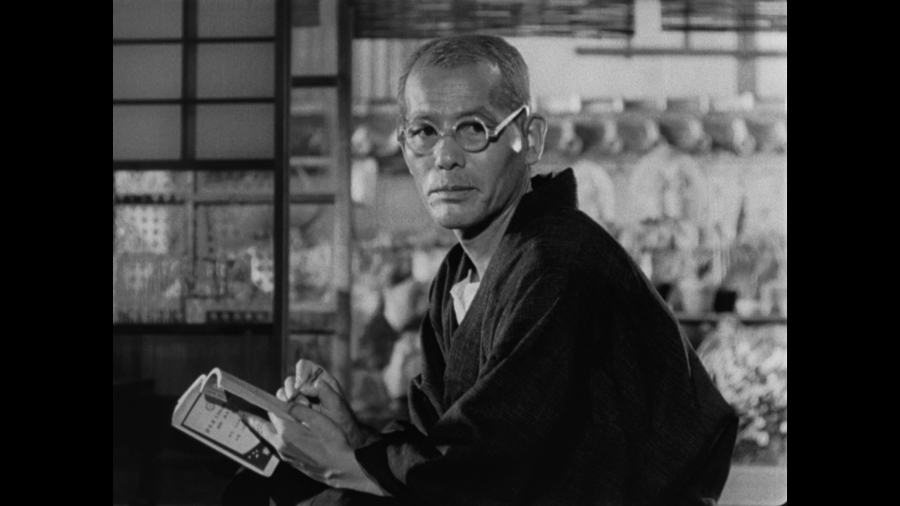
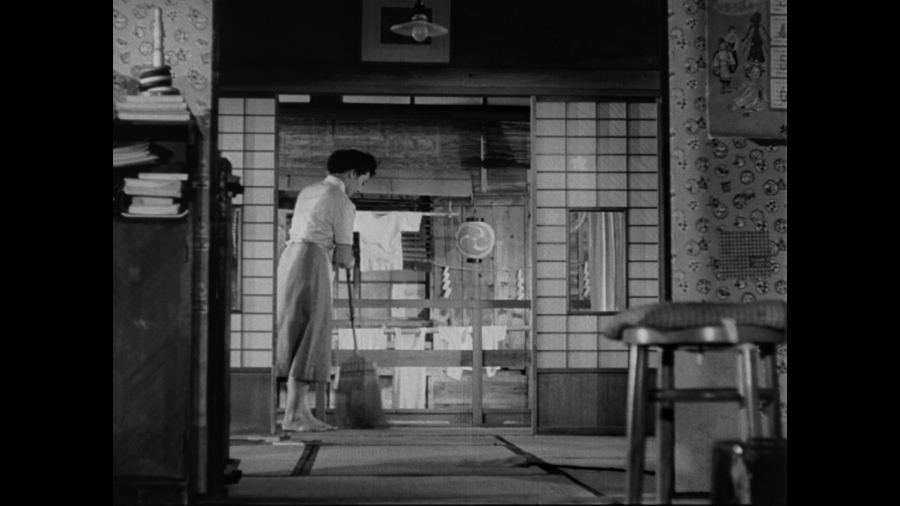
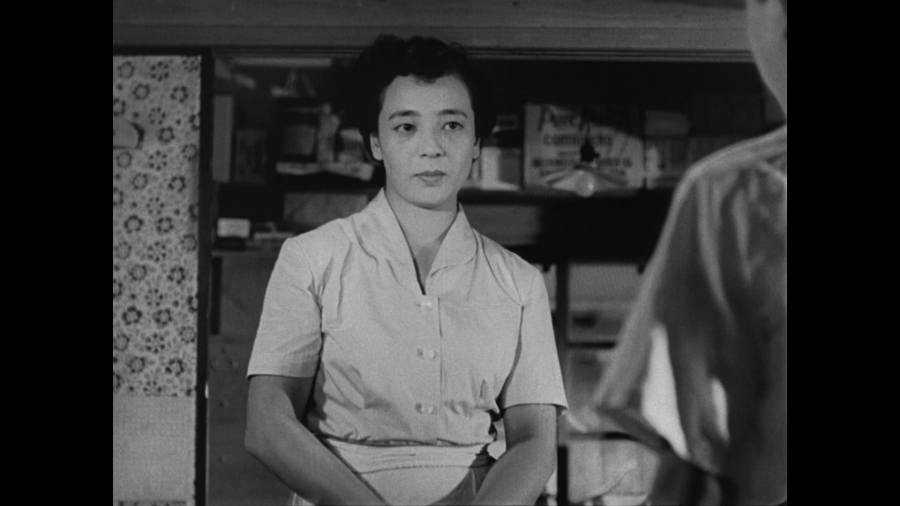




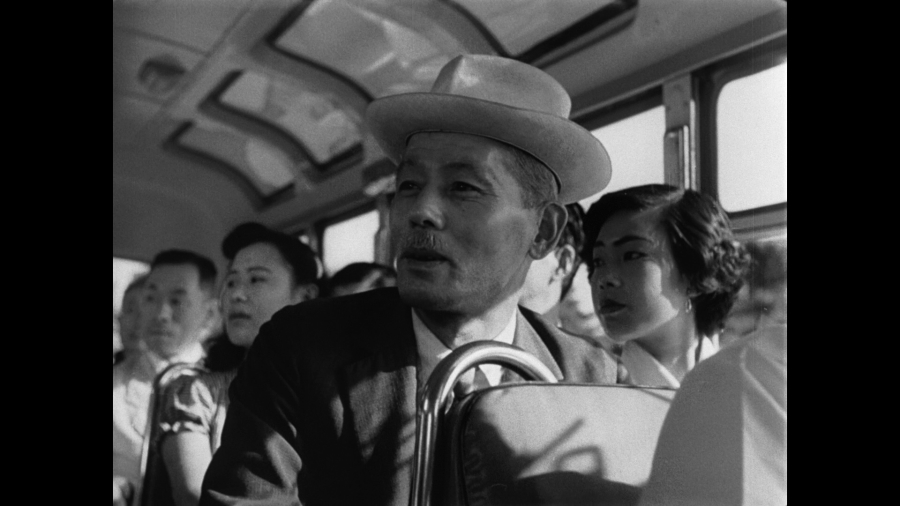
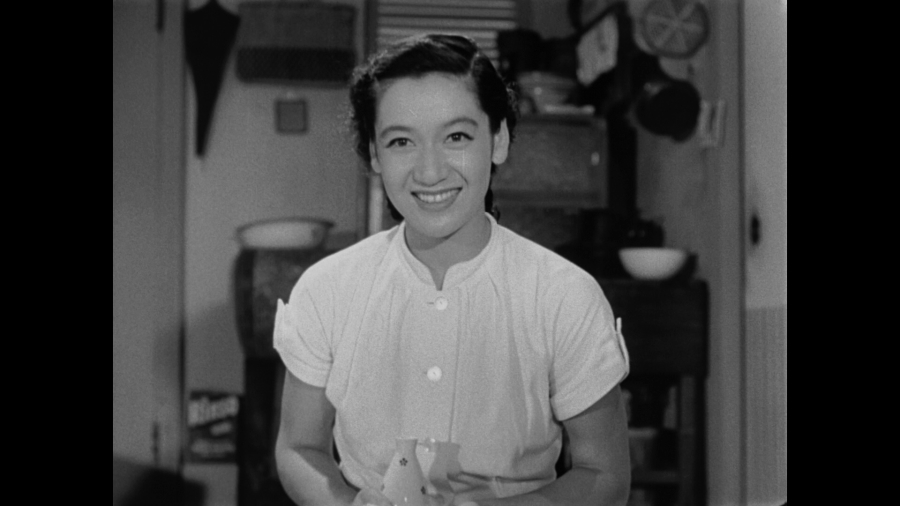





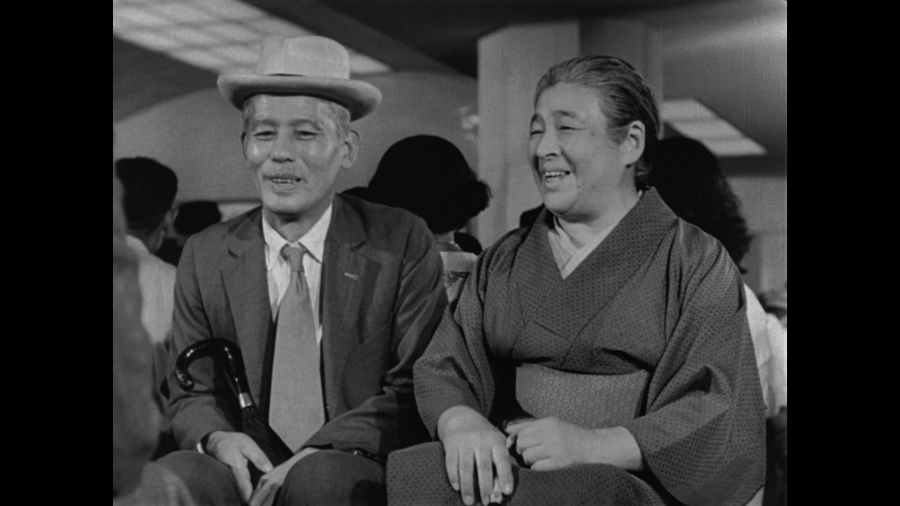
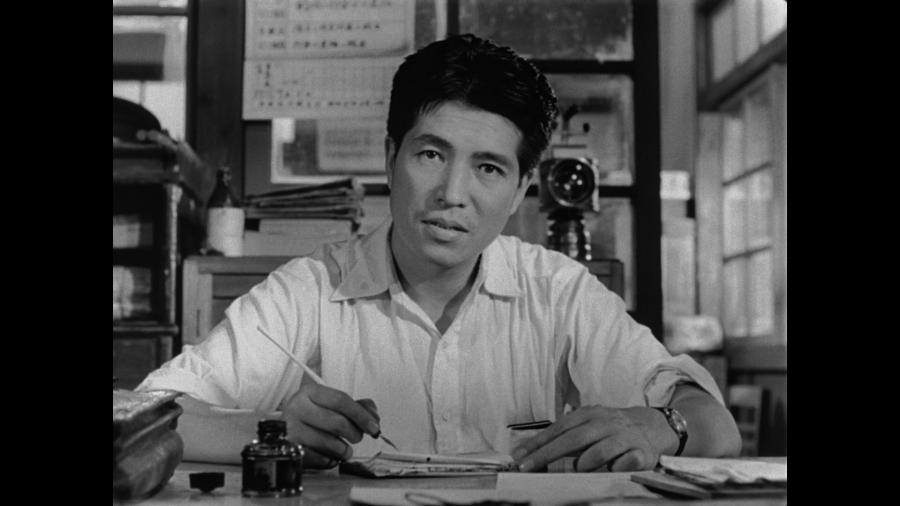



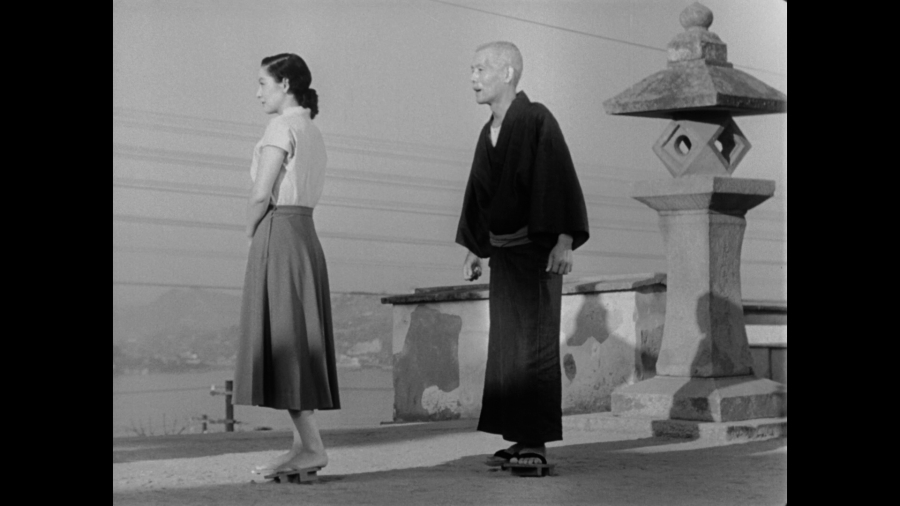




















Audio 5/10
Audio is a bit better than the previous DVD but not by much. It’s delivered here in lossless linear PCM 1.0 mono on the Blu-ray and Dolby Digital 1.0 mono on the DVD.
In both cases both tracks still come off somewhat distorted and edgy, and there seemed to be slight hiss at times in the background, but I didn’t notice any cracks or pops. There is no fidelity or range to speak of, making the track very flat. Ultimately the issues are with the source and have nothing to do with the transfer itself.
Extras 9/10
This dual-format edition carries over all supplements from the previous DVD and even manages to add some new material.
First is the same audio commentary by film scholar David Desser. It’s a very scholarly piece but it’s energetic and flows nicely as Desser goes over Ozu’s techniques, his camera placement, editing, and the unusual way he worked. He talks about his work overall and brings up points from his life, goes over his influences and even those he influenced. When I first listened to this on the original DVD I was fairly unfamiliar with Ozu but found this track a great primer on the director. It’s a strong track, especially great for those just being introduced to the director.
First of the video features is Talking with Ozu, a 40-minute piece put together by Shochiku in 1993 to mark the 90th anniversary of Yasujiro Ozu’s birth. In it directors Stanley Kwan, Aki Kaurismaki, Claire Denis, Lindsay Anderson, Paul Schrader, Wim Wenders, and Hou Hsiao-hsien all discuss the director, recalling the first film they saw (which is either An Autumn Afternoon or Tokyo Story in most cases,) the impact the film had on them (Kwan appears to have been especially moved by Ozu’s work,) what they most admired about his style, his compositions, and his presentation of people. Wenders even proudly owns a small pot that appeared in one of Ozu’s films, and Kaurismaki amusingly curses the director for getting him interested in filmmaking. A rather loving tribute by all.
The real gem here, carried over from the original DVD as well, is the 122-minute documentary on Ozu I Lived, But…, made in 1983. Unsurprisingly it’s an incredibly comprehensive documentary, covering every detail of his life from basically the day he was born, to how he first got into film, his career and a vast majority of his work from silent cinema to colour, and then his death. It gathers together interviews with friends, family, and those that worked with him, who talk about his method of directing, how he was in his personal life, his influences, and so on. Though it’s lengthy and covers a lot of ground it isn’t all that different from most documentaries of its ilk, but it’s a satisfying and particularly engaging one.
New to this release is the 45-minute documentary Chishu Ryu and Shochiku’s Ofuna Studios about the actor and the named studio. The documentary, through interviews with Ryu, covers his career and the history of the studio. Ryu had been there from the very beginning, working on early silent films (which he considers his worst work) and worked on a countless number of films, including most of Ozu’s. It’s a great reflection on the actor’s career and a decent history on the studio.
The Blu-ray disc then closes with the theatrical trailer. The Blu-ray of course has all of the aforementioned special features. The first DVD contains the film, the trailer, and Talking with Ozu. The second dual-layer DVD contains the remaining features.
The booklet then includes a slightly updated version of the same essay by David Brodwell found in the original DVD release. In it he offers a nice analysis of the film and Ozu’s work.
Criterion’s original DVD was an impressive release offering a terrific analysis of the film and a wonderful introduction to the director for those first coming to his work. Criterion carries over all of that material and then offers more on Chishu Ryu, nicely rounding out the edition.
Closing
Criterion has done an incredible job with this edition, delivering a great range of supplements covering the film, director, and star, and capping it off with a stunner of a transfer far better than I would have ever expected.








